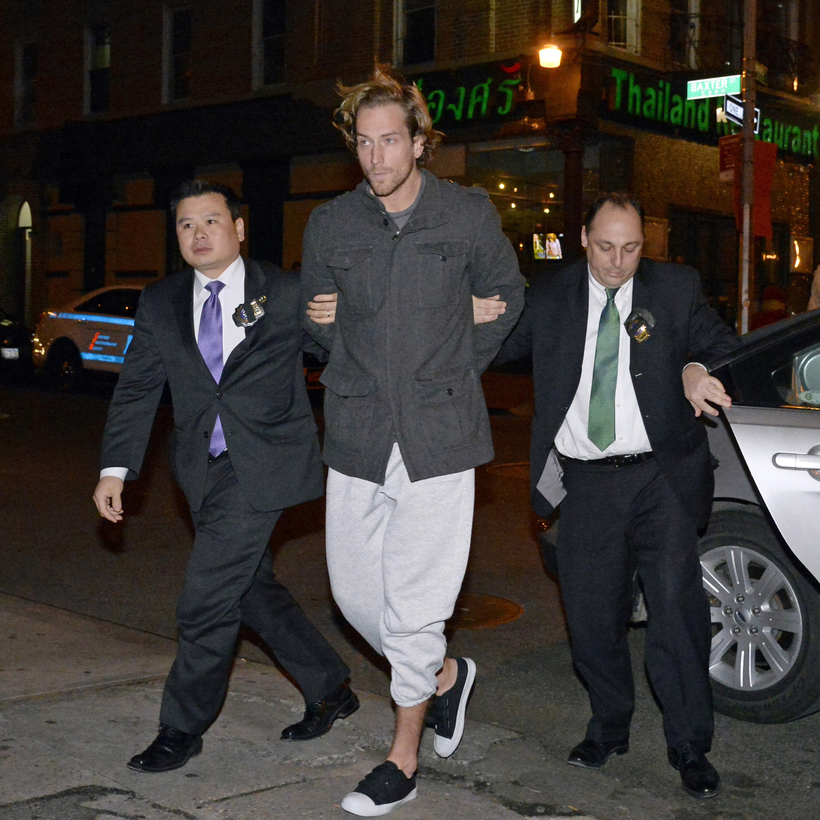When I was commissioned to write a true-crime book about Thomas Gilbert Jr., who murdered his father, a hedge-fund owner, for cutting his allowance, I had no idea it would make me question the nebulous part mental health plays in the American legal system.
Blond, blue-eyed, and six-feet-three-inches tall, Tommy, as he was known to everybody, grew up in extreme privilege. He had an elite education at the ritzy Buckley and Deerfield schools before following his father and grandfather to Princeton, where he majored in economics.
In early January 2015, Tommy, 30 at the time, arrived unannounced at his parents’ Upper East Side home. He sent his mother out for a sandwich and shot his father point-blank in the head. He then staged the murder as a suicide.

The sensational patricide made lurid front-page tabloid headlines for days, bewildering New York society, which had embraced the Gilbert family for decades. Tommy was instantly branded as a spoiled rich kid, born with a silver spoon in his mouth.
It soon emerged that the young Gilbert was also being investigated by the Southampton police for burning his estranged best friend Peter Smith Jr.’s historic 17th-century family house, in Sagaponack, to the ground several months earlier, after Peter had taken out a protection order against him.
Unsound Mind
Over the next four years, I attended scores of hearings, where I slowly got to know Tommy’s mother, Shelley, always in the public gallery to support her son. Shelley’s father was bipolar and committed suicide, and she had helplessly watched Tommy’s perilous descent into paranoid schizophrenia, starting from his early teens.
In the months following the murder, Manhattan Supreme Court justice Melissa Jackson, a great-granddaughter of Theodore Roosevelt’s, ordered a 730 evaluation (a close psychiatric assessment sanctioned by the courts) to determine if Tommy, who had pleaded not guilty to second-degree murder and two weapons charges, was competent to stand trial.

Two court-ordered psychiatrists examined Tommy and declared him mentally incompetent, but Manhattan assistant district attorney Craig Ortner appealed. He had Tommy re-examined by a third doctor, who declared him fit for trial.
To be legally competent, a defendant must be able to understand the courtroom procedure and the charges against him, and have the capacity to effectively participate in his own defense. It is quite possible for someone suffering from serious mental illness to be declared fit for trial.
After an exhaustive nine-day competency hearing in the winter of 2015, Justice Jackson found Tommy fit for trial. In her written decision she expressed surprise at having someone with Tommy’s impeccable social pedigree before her.
There would be several more 730 competency examinations before Tommy eventually stood trial at the Manhattan Supreme Court, in May 2019.
He sent his mother out for a sandwich and shot his father point-blank in the head.
When the trial began, Tommy, by that point deathly pale with a scraggly beard and unruly hair, was almost unrecognizable from his arrest photos. Four long years on Rikers Island had certainly taken their toll on the former surfer with model looks.
During his murder trial, I was shocked to watch Tommy actively sabotage his own defense, ignoring the advice of his lead attorney, Arnold Levine.
“He’s not assisting his lawyer,” Levine told the judge at one point. “He’s actually working against [me].”
Tommy was frequently disruptive in court, addressing the jury and halting proceedings, with the judge often sending the entire panel out of the room before admonishing him. At one point Tommy had to be dragged from the courtroom by bailiffs after shouting “Objection” more than 30 times during a detective’s testimony.

To me it was a travesty of justice. Tommy seemed to be in another world and far removed from his own murder trial. This pitiful judicial charade lasted almost two months, with Tommy often preferring to remain at Rikers rather than appear in the courtroom.
When he was there, he frequently addressed Justice Jackson directly, referring to himself as “the defendant,” spouting nonsensical legal verbiage, and citing his First Amendment rights.
The judge was convinced that Tommy was merely putting on an act and treated him like a naughty schoolboy. But after four years of watching Tommy’s physical and mental decline, it was hard for me to agree.
In late June 2019, a jury found Tommy guilty of second-degree murder and two weapons charges, rejecting an insanity defense. Three months later, Justice Jackson sentenced him to the maximum of 30 years to life in prison. He will be eligible for parole when he is 65.
“My hope is that in prison you will take your medication,” she told Tommy as he stared into space.
John Glatt’s Golden Boy: A Murder Among the Manhattan Elite is out now from St. Martin’s

